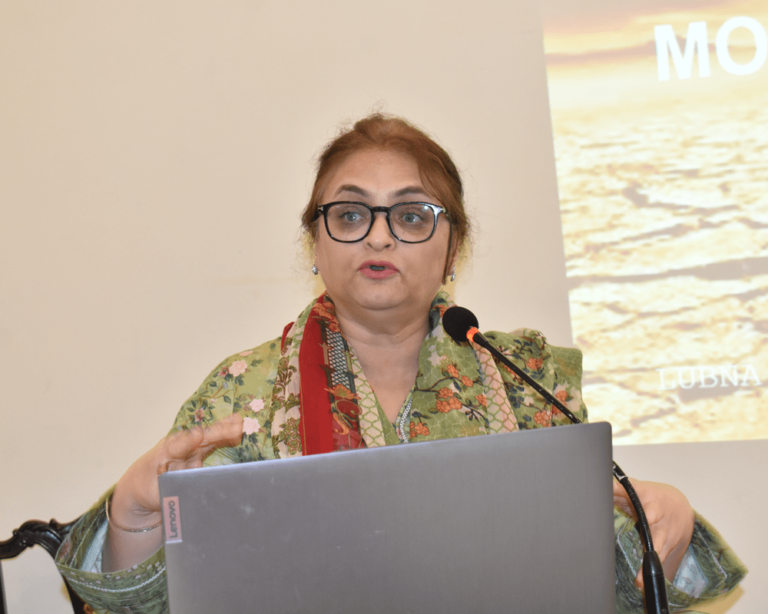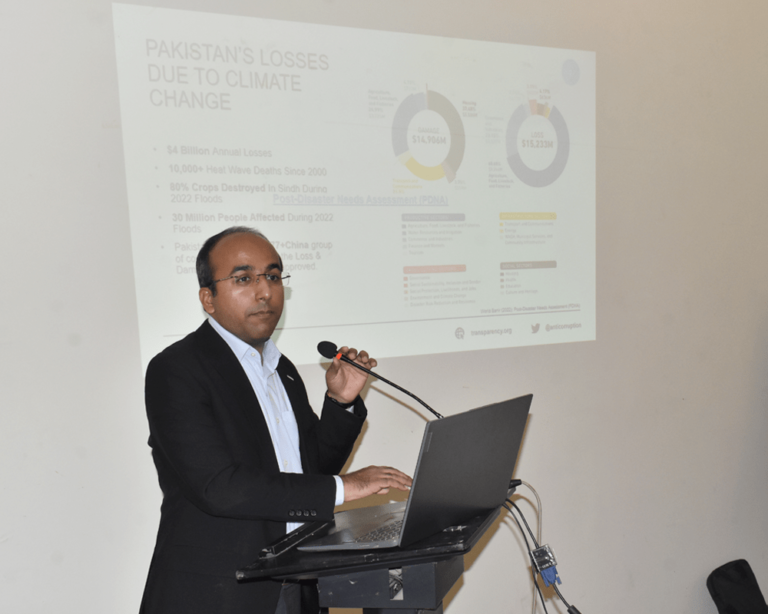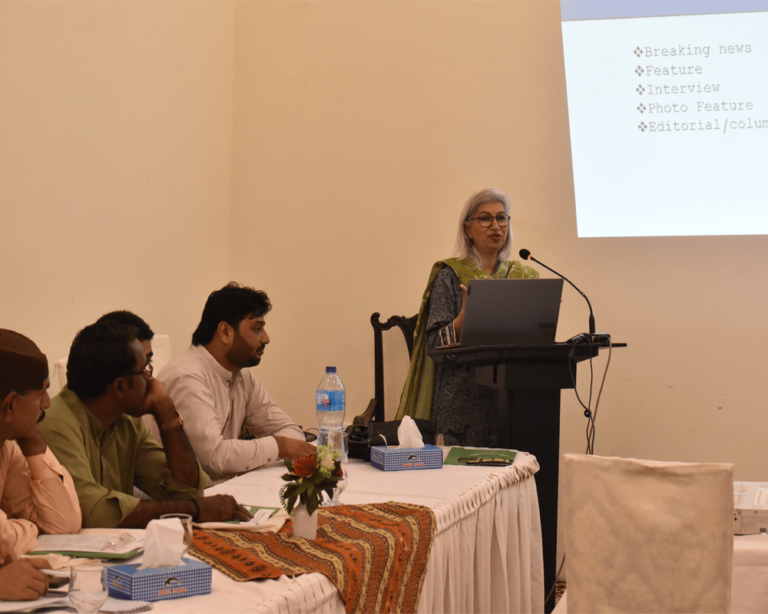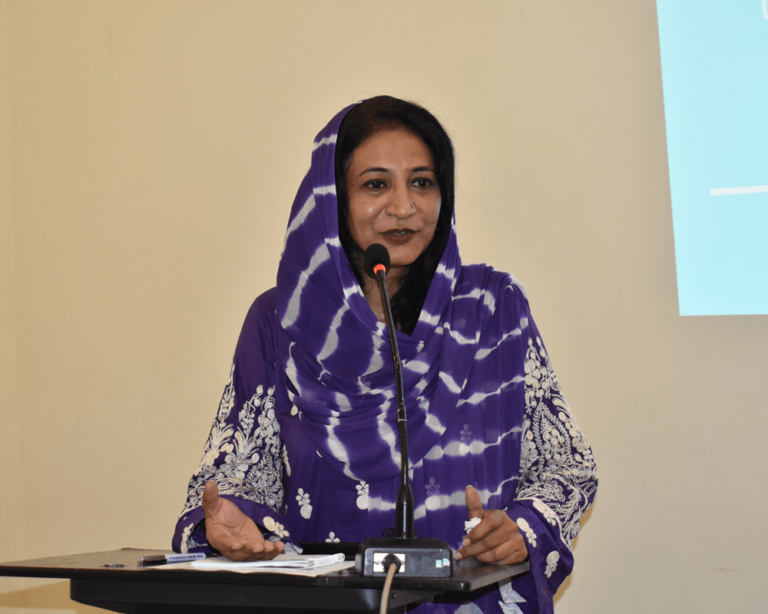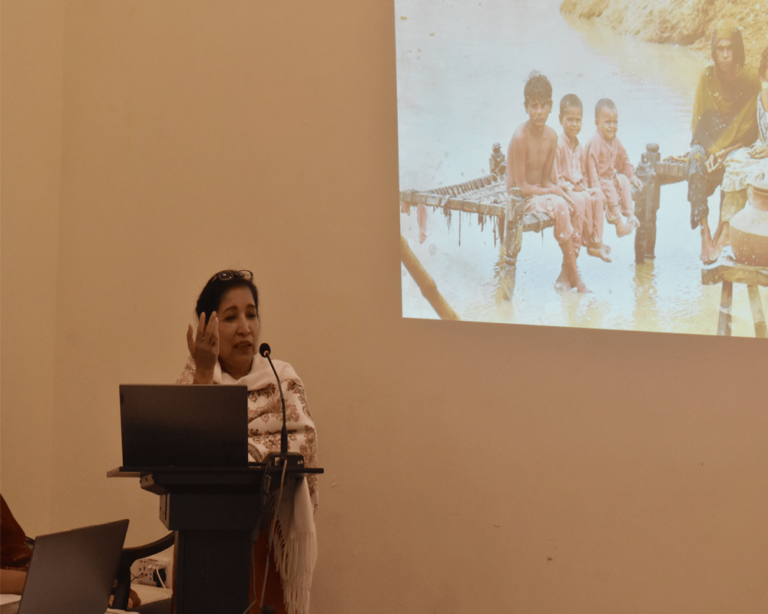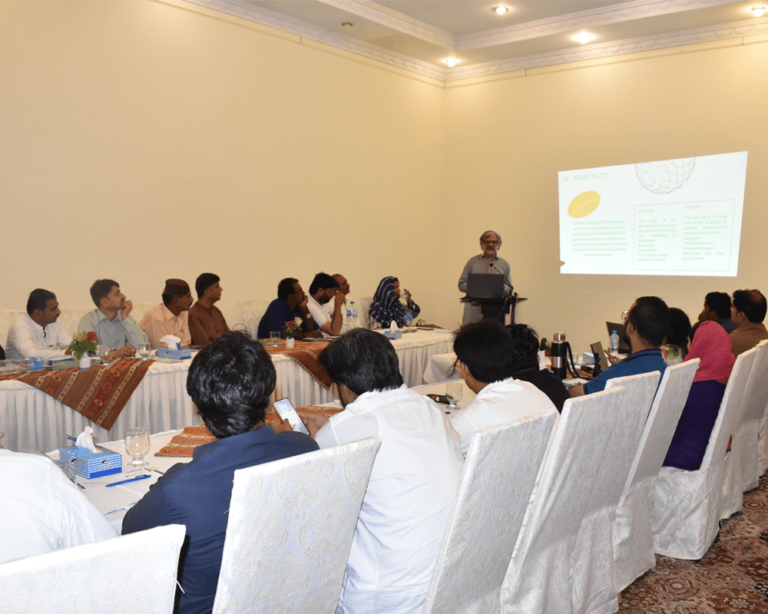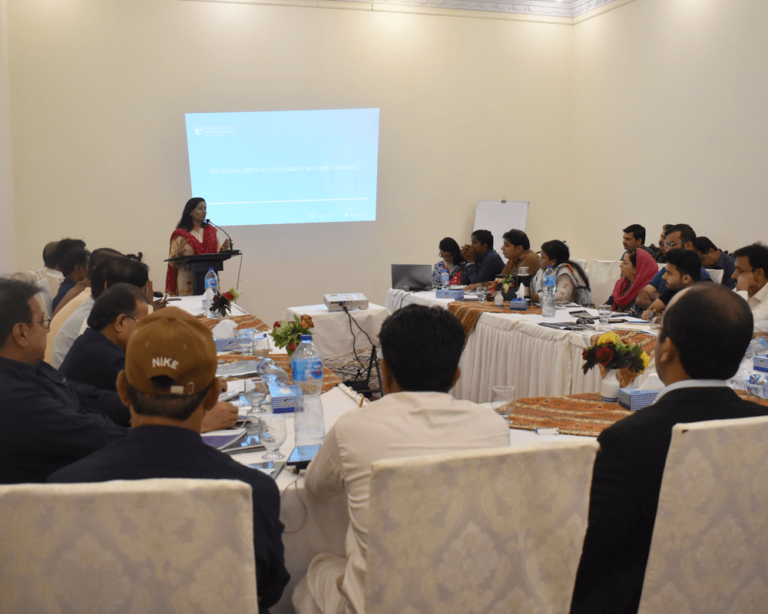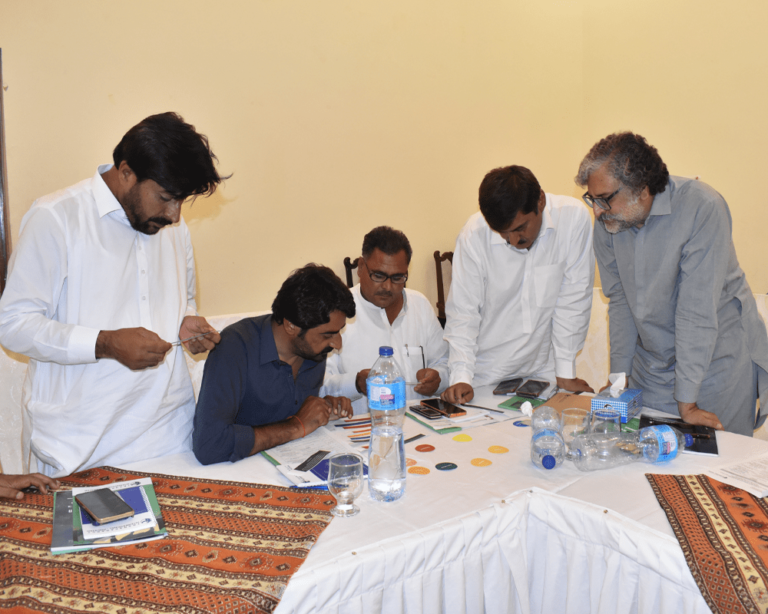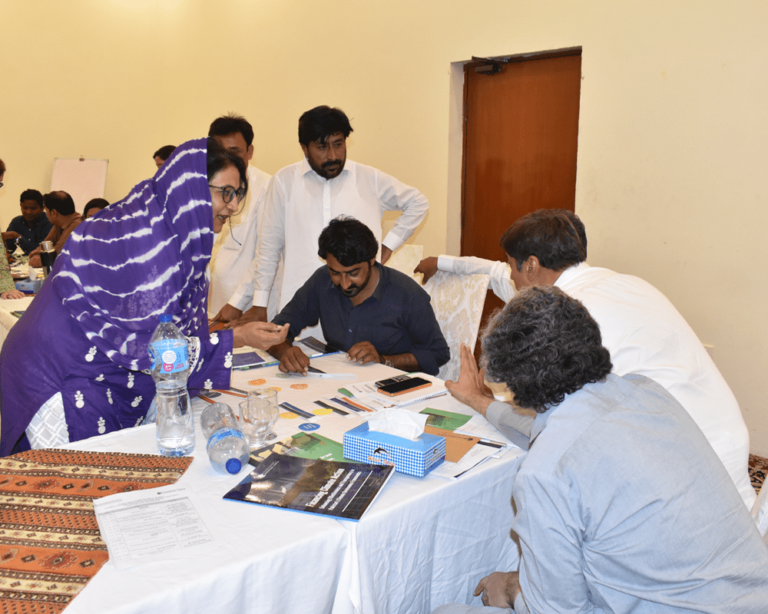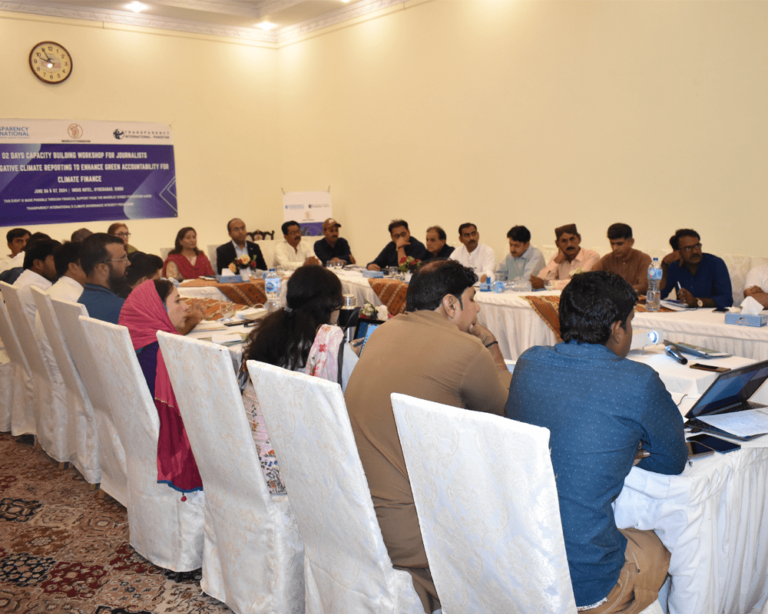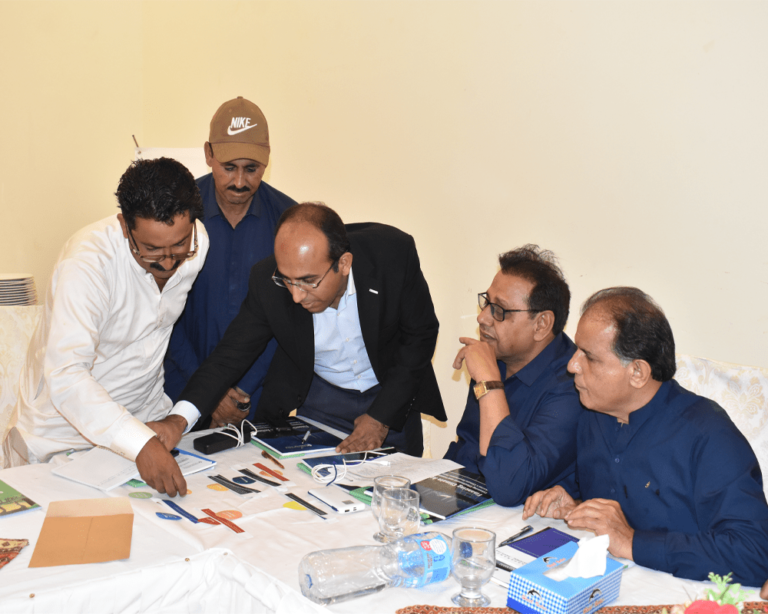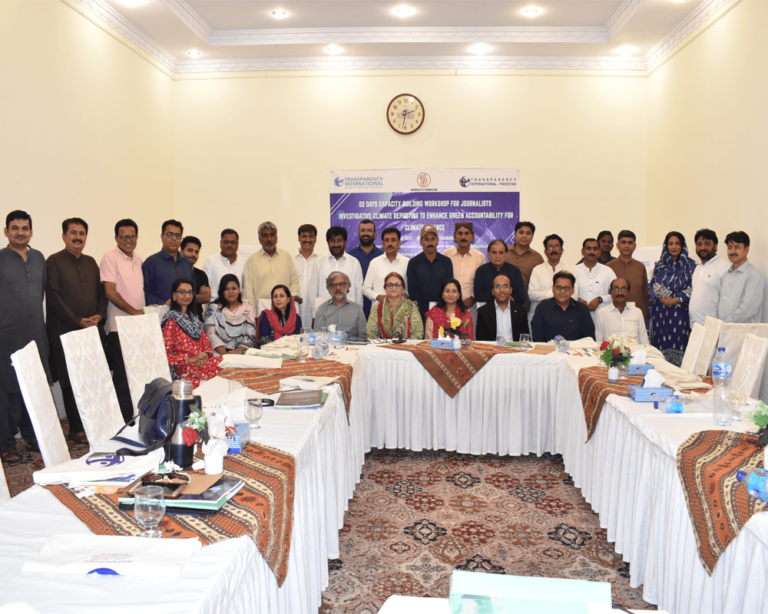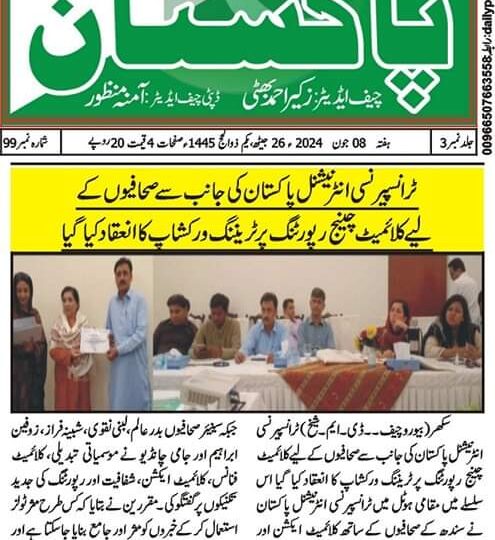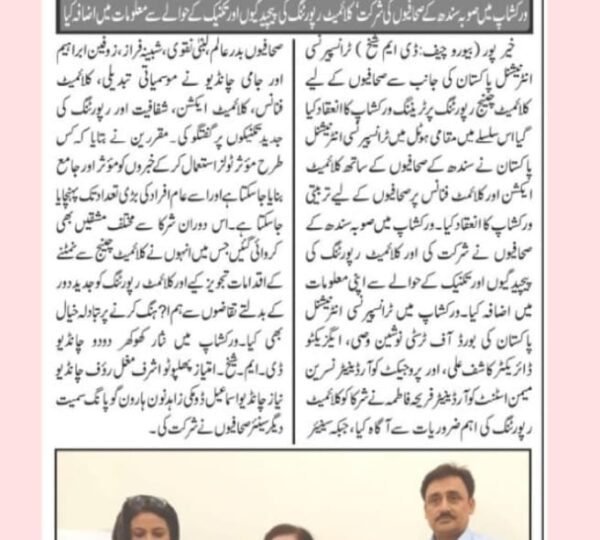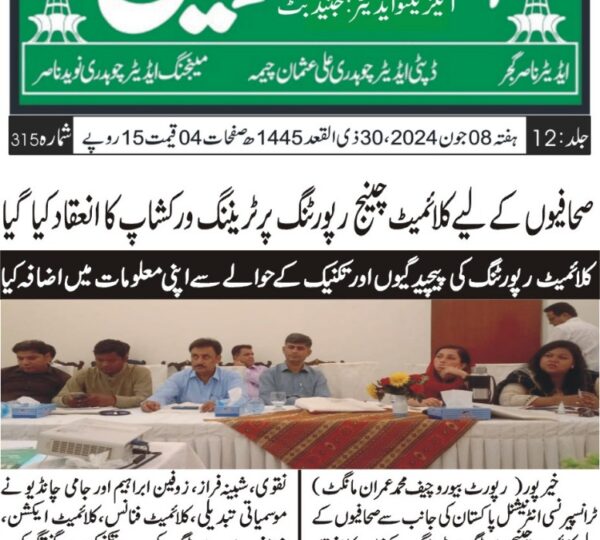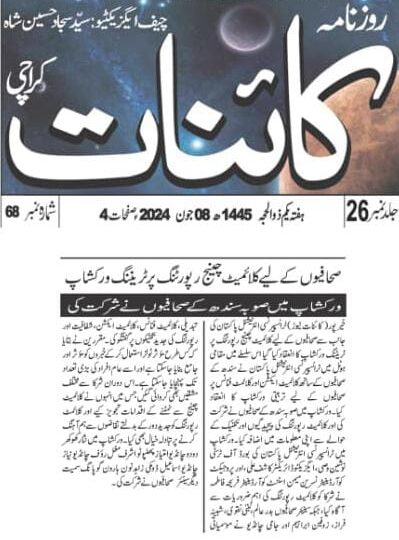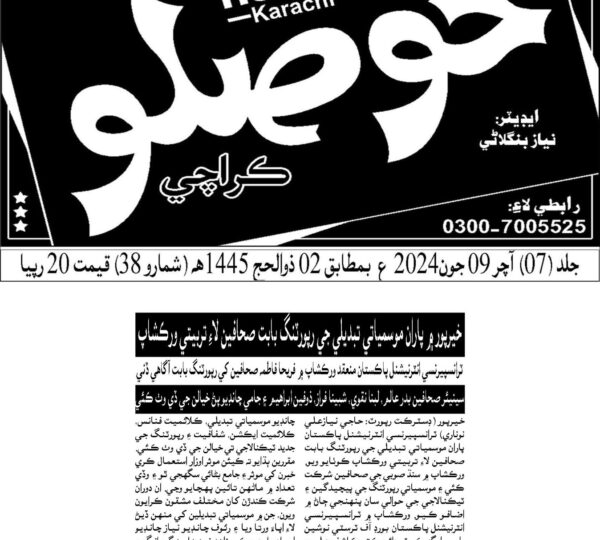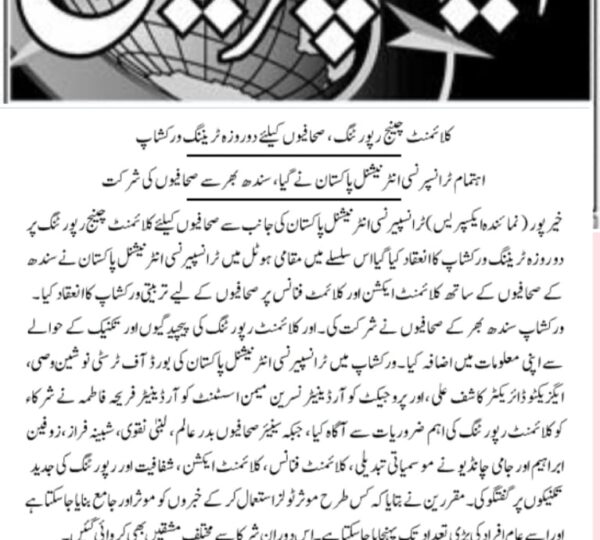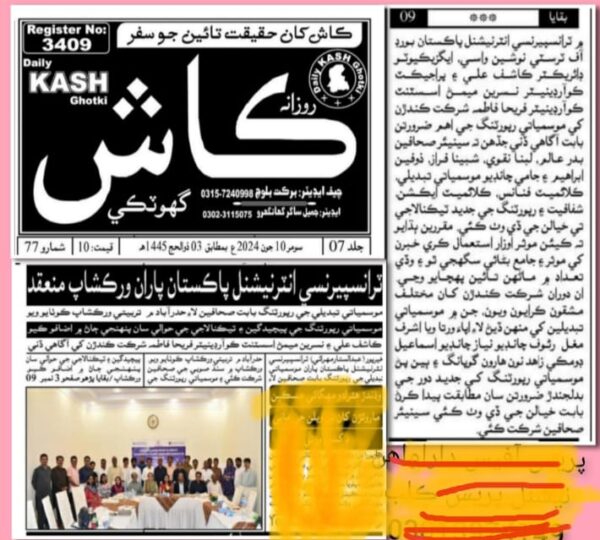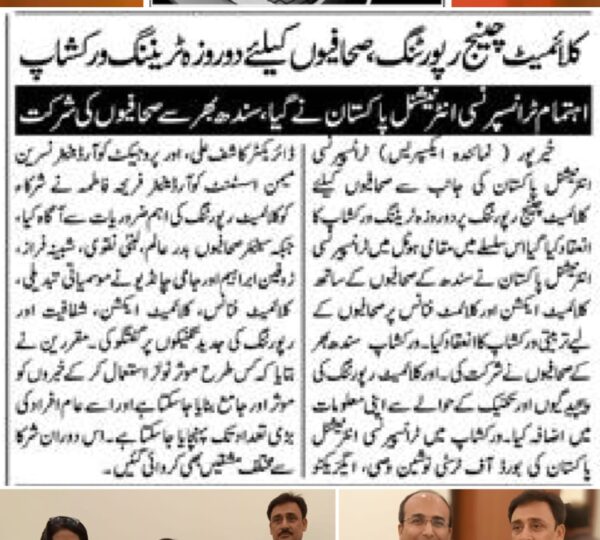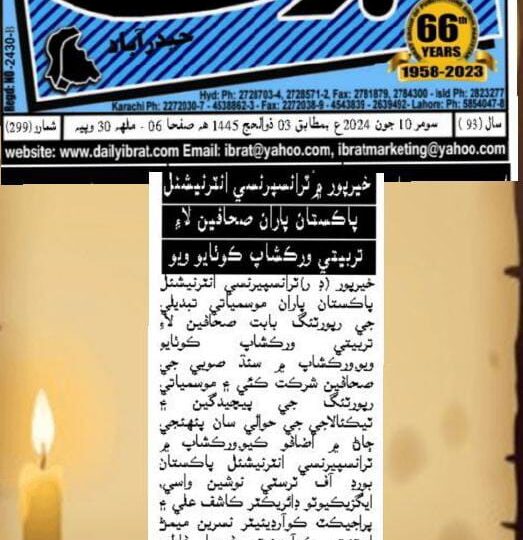- Home
- 02 Days Capacity Building Workshop for Journalists: Investigative Climate Reporting to Enhance Participation and Green Accountability for Climate Finance
02 Days Capacity Building Workshop for Journalists: Investigative Climate Reporting to Enhance Participation and Green Accountability for Climate Finance
02 Days Capacity Building Workshop for Journalists: Investigative Climate Reporting to Enhance Participation and Green Accountability for Climate Finance
Date: June 06 & 07, 2024, Thursday and Friday
Venue: Indus Hotel, Hyderabad, Sindh
Transparency International (TI) Pakistan organized 02 days capacity building workshop for journalists on Investigative Climate Reporting to Enhance Civil Society Participation and Oversight for Climate Finance, on June 06 & 07, 2024 at Indus Hotel, Hyderabad, Sindh.
Around 30 journalists from 15 climate vulnerable districts across Sindh province attended the workshop. The workshop commenced with the recitation of the Holy Quran. Dr. Nausheen Wasi, Board of Trustee, TI Pakistan delivered opening remarks and underscored the critical role that journalists play in shaping public perception and policy agenda setting on climate issues. Dr. Nausheen stressed that empowering journalists with the skills and knowledge on climate finance is vital for ensuring participation, transparency and integrity in climate initiatives.
Moving on, Ms. Nasreen Memon, Project Coordinator, TI Pakistan briefed on the objectives of the workshop. She highlighted that the workshop aims to empower journalists with the knowledge and skills to strengthening climate reporting which is key to ensure that the marginalized communities have access to vital information, enabling their participation in decision-making processes and holding authorities accountable for climate action.
Next, Mr. Badar Alam, senior journalist and CEO of Policy, Research Institute for Equitable Development (PRIED), Islamabad delivered training on “Understanding Climate Change & Prioritizing Climate Action”. He emphasized on the vulnerability of Sindh Province, arising out of coastal issues and extreme weather events. He highlighted that journalists can play a crucial role in raising awareness about climate change and its implications for Sindh Province by informing the public, shaping public opinion, exposing malpractices, policy advocacy and holding authorities accountable.
In his second session on “Climate Transparency: How Journalists can Ensure Oversight for Climate Action”, he highlighted the critical role journalists play in holding stakeholders accountable and ensuring transparency in climate initiatives by regular monitoring and engaging the public. Mr. Badar mentioned the strategies to enhance journalist’s skills such as building expertise, having specialized trainings, collaborations with scientists and using modern storytelling techniques to produce in-depth investigative news stories and accelerating the climate action in the country.
Afterwards, Mr. Kashif Ali, Executive Director, TI Pakistan delivered a session on “Green Accountability in Climate Finance.” He spoke about climate governance structures and current state of climate finance in the country. He emphasized that journalists are at the heart of climate accountability. He shared that journalists can monitor climate budgets, pledges made by the governments as part of UNFCC country statements and the pledges made by the corporations. He highlighted that the two important areas which require oversight are the pledges around carbon emission reductions, and the tracking of climate finance to ensure that it is utilized in transparent manner with participation of citizens in climate initiatives.
Next, participants were engaged in a group activity on understanding climate terminologies and identifying mitigation and adaptation measures. Participants were divided into groups to work on climate mitigation and adaptation strategies as well as identifying different types of climate finance.
Towards the end, Ms. Lubna Jerar Naqvi, senior journalist and media trainer delivered presentation on “Digital Tools for Climate Smart Reporting.” She described the importance of mobile journalism (Mojo) in climate and disaster reporting, highlighting its convenience compared to conventional reporting.
On second day of the workshop, Ms. Zofeen T. Ibrahim, environmental journalist delivered training on “Understanding and Reporting on Climate Change” and “Crafting Investigative Stories”. She shared tools to examine evidence and impact of human activities on the environment. She provided a guideline to effectively pitch stories to editors and media outlets. This requires ensuring the relevance and urgency of climate issues as well ensuring proper evidence backed by data. She emphasized on including the local human perspective to establish relevance of stories to the local audience.
Moving on, Mr. Kashif Ali, Executive Director, TI Pakistan provided training on climate procurement transparency. He highlighted that around 20% of Pakistan’s GDP spending is through procurement. In the context of climate change, as governments spend on climate initiatives, it is important that green procurements are transparent. He highlighted that procurement related to climate governance involves acquiring goods, services, and infrastructure that help communities and systems adjust to the changing climate and mitigate the adverse effects of climate change. In this regard, he provided awareness about the provincial procurement rules and emphasized that the journalists have a crucial role in ensuring that climate spendings are conducted in transparent manner and in compliance with the rules. In this regard, he said Right to Information is an important tool journalists can use to obtain accurate and reliable information. He delivered a comprehensive overview on Sindh RTI Act 2016 and its role in transparency of climate budgets. He said that the journalists should adopt this law as a weapon as it empowers them to keep an eye on public institutions. He added that most of the citizens are not aware of climate change and its effects. Therefore, the concerned agencies should inform the citizens about climate change and the situation arising out of it in a timely manner. So that along with the institutions, the citizens also realize their responsibilities and take timely steps.
Towards the end, Ms. Shabina Faraz, environmental journalist, BBC Urdu discussed how to write a significant news story with big impacts about something small. She emphasized the power of narrative and investigative depth in revealing the broader significance of small-scale climate events or phenomena. Participants learned the use of storytelling and thorough research to obtain timely data, making their environmental reporting more influential and helping people understand the issues better.
At the end, a certificate distribution ceremony was held, acknowledging the dedication and commitment of participants throughout the workshop.


